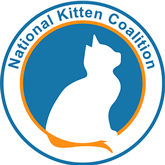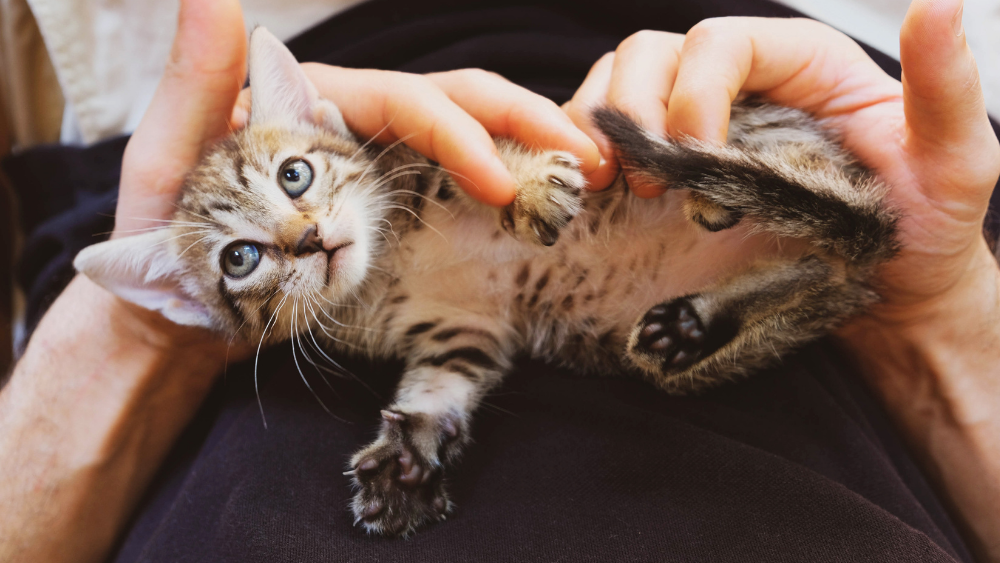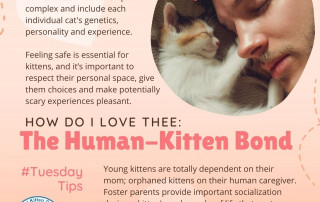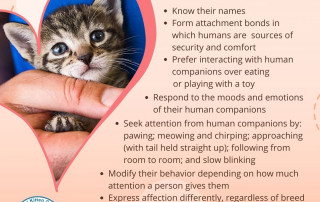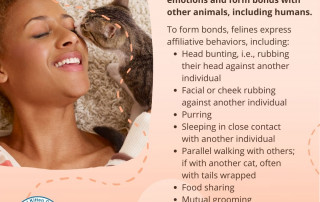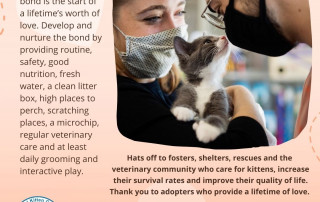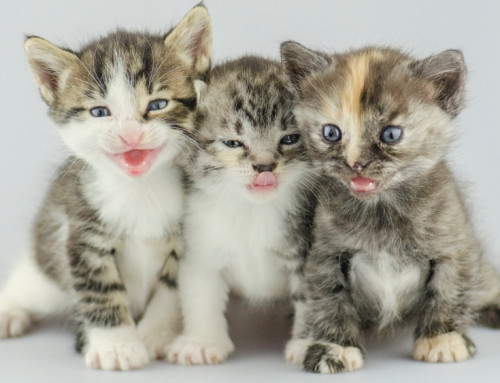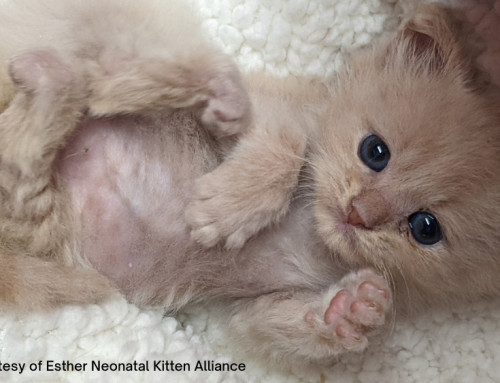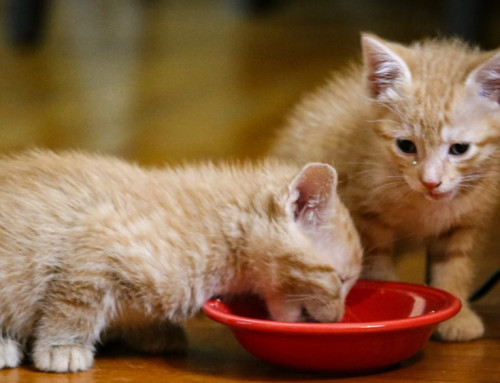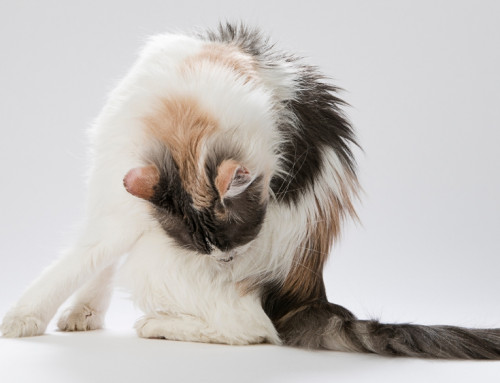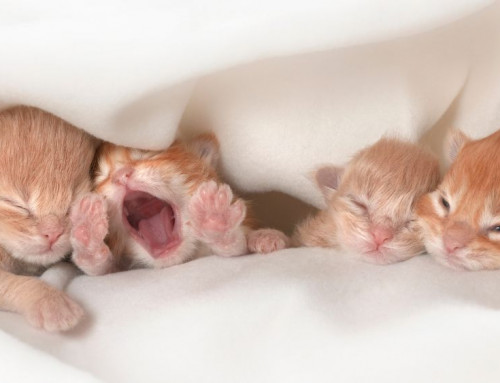Share this resource or email it to a friend!
Valentine’s Day typically celebrates love between humans. Images commonly associated with Valentine’s Day include: Cupid, the Roman god of love; hearts, traditionally the seat of emotion; and birds, because it was thought that mid-February was the beginning of the avian mating season.
In many parts of the world, February is also the start of the feline mating season, which results in the birth of countless unplanned kittens. Even 4-month-old kittens can become pregnant. That’s why it’s so important for shelters and rescues to spay and neuter kittens before adoption.
Nowadays, pets are increasingly considered beloved family members, and when it comes to kittens, what’s not to love? The factors that shape the human-kitten relationship are complex and include genetics, personality and experience. Research shows that cats, including kittens:
- Form attachment bonds, in which human companions are viewed as sources of security and comfort that likely remain stable over time
- Seek attention from their human companions by: pawing; meowing and chirping; approaching (often with tail held straight up); following human companions from room to room; and slow blinking
- Prefer interacting with human companions over eating or playing with a toy
- Modify their behavior depending on how much attention a person gives them
- Respond to moods and emotions of human companions
- Know their names
- Express affection differently; some are more affectionate than others, which is not based on breed
It’s no surprise to ailurophiles (cat lovers) that kittens and people experience similar emotions and form bonds with other animals, including humans. To form bonds, felines express affiliative behaviors, including:
- Head bunting, i.e., rubbing their head against another individual
- Facial or cheek rubbing against another individual
- Purring
- Sleeping in close contact with another individual
- Parallel walking with another cat, often with tails wrapped
- Food sharing
- Mutual grooming
- Playing
Kittens are totally dependent on their caretakers, feline or human, for all life-giving resources. Feeling safe is essential for kittens, and it’s important to respect their personal space, give them choices and make potentially-scary experiences pleasant.
For example, rather than forcing interaction on your lap, invite it by luring a kitten with a wand toy. Instead of forcing kittens into a carrier, accustom them to it gradually by playing with them around it, feeding them in it, etc. Additionally, never yell at, hit or scare kittens. Attachment bonds with human companions are likely to be damaged by punishment or harsh treatment.
The human-kitten bond is the start of a lifetime’s worth of love. Some important things that will help develop and nurture the bond, whether you’re a foster or adopter, include providing routine, safety, good nutrition, fresh water, a clean litter box, high places to perch, scratching places, a microchip, regular veterinary care and at least daily grooming and interactive play.
Hats off to fosters, shelters, rescues and the veterinary community who care for kittens, increase their survival rates and improve their quality of life. Happy Valentine’s Day!
